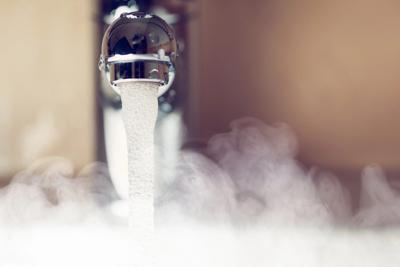
In every home across Australia, the hot water system plays a pivotal role in providing essential services, be it delivering a comfortable shower, aiding in cooking, or ensuring sanitary cleanliness through dishwashing. This functionality underscores the necessity of being conversant with different hot water system options. This comprehensive guide promises to understand the differences: gas versus electric hot water systems, highlighting their merits and potential downsides and offering maintenance advice. Identifying the right hot water system based on individual requirements is a crucial facet of home ownership that directly impacts cost efficiency, utility effectiveness, and environmental sustainability.
The Basics of Hot Water Systems
A hot water system is a domestic appliance that harnesses energy to heat water above its initial temperature. It is a silent custodian of home hygiene, comfort, and culinary assistance. Hot water systems come in various forms, but gas and electric systems are the most popular choices among homeowners.
The selection of a hot water system is seldom random and often influenced by various factors. The initial system cost, energy prices in your area, and home insulation are significant considerations. Furthermore, household requirements like household size and average hot water usage also come into play.
Exploring Gas Hot Water Systems
Gas hot water systems heat water by burning natural gas or LPG (Liquefied Petroleum Gas). The fuel is directed to a burner, which heats the water before reaching your taps or appliances.
One significant advantage of gas systems is their ability to heat water on demand, offering discernable energy savings due to less standby energy use. Furthermore, they have substantial energy output capabilities, making them suitable for larger households or properties that consume more hot water.
Nonetheless, gas systems have their fair share of drawbacks. For starters, they necessitate access to natural gas lines or LPG supply, which could limit their viability for some homeowners. Additionally, gas hot water systems can be complex and prone to certain downtimes, leading to higher maintenance costs over time than their electric counterparts.
Examining Electric Hot Water Systems
Electric hot water systems employ electric resistance heating elements to elevate water temperatures. Unlike gas systems, these devices store heated water within an insulated tank, dispensing as and when required by appliances and fixtures.
In terms of advantages, electric systems stand out for their straightforward setup process, primarily if your home is already configured for electricity. The average purchase and installation cost of electric hot water systems is more affordable than gas systems and can run on solar power if your home has a connected photovoltaic system.
However, their cost-effectiveness falls short with ongoing usage. Electric hot water systems are costlier to run in the long term due to the high cost of electricity, especially when compared to natural gas. Furthermore, electric water systems might contribute more to carbon emissions unless powered by renewable energy, leading to environmental concerns.
Gas Vs. Electric Hot Water Systems: A Comparative Analysis
The debate between gas and electric hot water systems hinges on a few fundamental factors – cost, energy efficiency, convenience, and environmental footprint. Gas systems are synonymous with fast water heating capabilities and provide continuous hot water ideal for larger households. They are also noted for lower operational costs over time. However, their initial purchase and setup costs can be considerable, especially if a building lacks the necessary gas lines.
On the other hand, electric hot water systems offer a more economical upfront solution. They are more suitable for smaller households and excel in areas without natural gas availability. However, their running costs can escalate rapidly, given the high electricity prices and, potentially, the system's durability with continuous usage.
Both systems have opposing differentiators in terms of environmental considerations. When utilised with renewable sources, electric systems have a smaller carbon footprint than gas. However, the system's environmental impact is more significant if the electricity is sourced from fossil fuels.
Making the Right Choice: Considerations When Selecting Your Hot Water System
Selecting a suitable hot water system requires a comprehensive look at several pivotal factors. Top of this list should be your household hot water demands, considering the number of occupants and the frequency of hot water usage. Additionally, geographical location, seasonal climate variations, and available energy sources in your area also hold merit.
You also need to make future-proof decisions—will there be a shift in energy sources down the line? Are there plans for home renovations or additions that could affect hot water needs? Equip yourself with comprehensive knowledge and be open to professional advice to ensure you invest in an energy-efficient system that aligns with your current and future demands.
Understanding your hot water options is not a task to take lightly. It requires carefully analysing the pros and cons of gas and electric hot water systems and a solid understanding of your unique circumstances and needs. Striking a balance between initial costs, ongoing expenses, efficiency, and environmental impacts can lead to an optimum choice that elevates your home’s comfort, caters to your hot water needs, and embodies responsible consumption. Our hot water choices can reflect our commitment to home management and a viable world, prompting us to go beyond the mainstream and appreciate, precisely, what’s ‘heating up’ in our homes.


(0) comments
We welcome your comments
Log In
Post a comment as Guest
Keep it Clean. Please avoid obscene, vulgar, lewd, racist or sexually-oriented language.
PLEASE TURN OFF YOUR CAPS LOCK.
Don't Threaten. Threats of harming another person will not be tolerated.
Be Truthful. Don't knowingly lie about anyone or anything.
Be Nice. No racism, sexism or any sort of -ism that is degrading to another person.
Be Proactive. Use the 'Report' link on each comment to let us know of abusive posts.
Share with Us. We'd love to hear eyewitness accounts, the history behind an article.